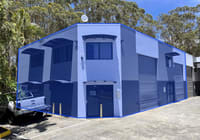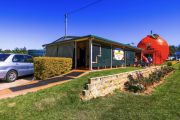
Rising costs a risk for developers and builders: Triguboff
Soaring building costs are making it hard for developers to price apartment projects that they sell now and will only complete two years later, veteran developer and Financial Review Rich Lister Harry Triguboff says.
The surge in costs was a new situation for many developers and builders and posed risks for both, Mr Triguboff told The Australian Financial Review Property Summit.
“The building costs are going up a lot,” he said.
“It’s not a matter of the labour force asking for a 5 per cent increase or 3 per cent increase. Iron ore prices have come down, but the steel has gone up. And it’s going up by a lot, not by 2 per cent – [but by] 10-20 per cent. It’s going up a great deal.”
Mr Triguboff, whose company Meriton builds its own projects, said the soaring building materials prices posed a risk to construction companies, which needed to give themselves a bigger buffer to manage higher costs and delays that were slowing progress of projects.
Earlier in the day, Dexus CEO Darren Steinberg and Lendlease CEO Steve McCann also lamented rising costs of steel and lumber. “This is going to put price increases on construction,” Mr Steinberg said.
Mr Triguboff declined to make a prediction on whether more builders would hit the wall, following a recent run of building company insolvencies that includes Queensland’s Privium Group, Melbourne’s ABD Group and Hobart custom home builder Inside Out Construction, but said the sector had difficult circumstances to navigate.
“They have to be very careful now and they have to assume they can make a lot more profit before they start,” he said.
“If they just think they can do everything quickly, they are wrong, because the subcontractors cannot guarantee the price.”
Meriton is navigating its own fluctuations. In financial statements the company lodged with the corporate regulator on Wednesday, it reported a near-tenfold surge in pre-tax profit to $267.6 million even as revenue fell almost 13 per cent to $1.27 billion.
The difference came from a reduction in inventories as it sold down more stock on its books, Mr Triguboff said.
“It depends on how many properties I hold, and how many properties I sell,” he said. “So if I hold more, then I make less profit.”
But Mr Triguboff said he could also increase his profit by sitting on a landholding he has acquired in Sydney’s southern suburb of Little Bay, where he has a permit to build 500 apartments, but is pushing to increase that to 1900.
“It’s really an upper class area, which is very good in today’s market, because it’s the upper class which went up,” Mr Triguboff said.
“Whether I get approval or don’t get approval, I’m making money just sitting on it. I have approval for 500 units. I want 2000 units.”
Mr Triguboff has been lobbying NSW Premier Dominic Perrottet to approve an expansion of the existing five-level, 445-unit scheme, a move opposed by local residents and local branches of the Liberal Party.
There should be no distinction between plans for the coastal suburb of Little Bay and Pagewood, 7 kilometres north-west and closer to Sydney Airport, where Meriton had approval for a much larger project, Mr Triguboff said.
“I build in Pagewood on the same area 2500 units and they have a problem of aeroplanes. This one doesn’t.”











